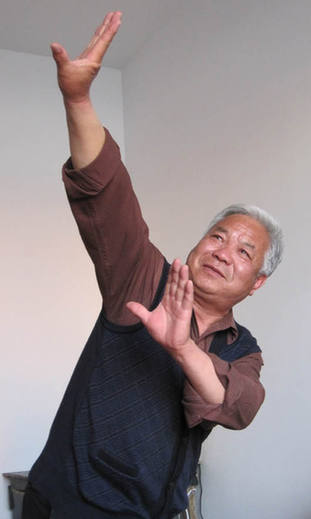Dang Zhongxin: Breathing New Life into an Antique Opera
By staff reporter JIAO FENG
Dang Zhongxin was born to a farming family in Heyang County, Weinan City of Shaanxi Province. Influenced by his family’s interests, he began to learn the art of the indigenous Hop Opera at a young age. With his exquisite makeup and outstanding performing skills, Dang was a firm favorite with local audiences. During the “cultural revolution” (1966-1976), Dang risked his personal safety to rescue more than 30 volumes of antique opera scripts from being burnt. In recognition of his devotion to this ancient art form, in 2009, he was nominated an inheritor of national intangible cultural heritage.
The reporter met Dang Zhongxin in a newly opened nursing home in Heyang County. The 67-year-old and his wife live beside the main gate on the ground floor. This is particularly convenient for his new job as janitor.
The couple moved to the town at their son’s suggestion, as they were getting too old to grow crops. Instead of sitting bored at home, Dang soon found a job as a janitor. “In our village, we would often visit our neighbors and talk with people we met. When we moved to town, we didn’t know anyone. It was boring and lonely for us. But my job means I can meet and interact with people daily.”
 |
|
Dang Zhongxin, inheritor of Heyang Hop Opera. |
A Living Fossil
Dang was born in Xingjiazhuang, a village 20 miles from Heyang County where the traditional Chinese art form Hop Opera has been performed and admired for centuries.
There are no written records on the origins of this form of opera; its history can be traced to around the 13th century. Unlike other traditional drama forms in China, Hop Opera has neither professional artists nor specialized troupes. Instead it is performed by amateurs for their fellow villagers. It is, thus, a cultural activity specifically for the entertainment of farming communities.
- Dang Zhongxin: Breathing New Life into an Antique Opera
- Confucius: Education Should Be Accessible to Everyone – Confucius Institute Düsseldorf Builds a Bridge to Chinese Language and Culture
- Decipher the Overseas Success of “Decoded”
- If You Are the One: Love at First Sight
- Chinese Contemporary Artists (7) Wang Tiantian: A Different Story to Tell from Previous Generations
